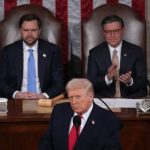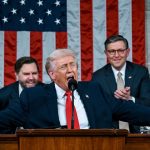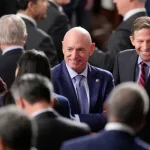In the wake of the Minneapolis school shooting, Gov. Tim Walz (D-MN) is pushing for more gun control legislation in Minnesota, although the state recently enacted a slate of firearm reform laws.
This week, Walz said he will call a special session for the closely divided Minnesota legislature to vote on a “very comprehensive” gun control package that the governor plans to propose, which could include a ban on “assault weapons.”
“If Minnesota lets this moment slide, and we determine that it’s OK for little ones to not be safe in a school environment or a church environment, then shame on us,” Walz told reporters Tuesday.
Minnesota, however, already passed an array of far-reaching gun control measures in recent years, thanks largely to a Democratic trifecta controlling the state House, Senate, and governorship.
Last year, for example, the legislature increased criminal penalties for “straw gun” purchases.
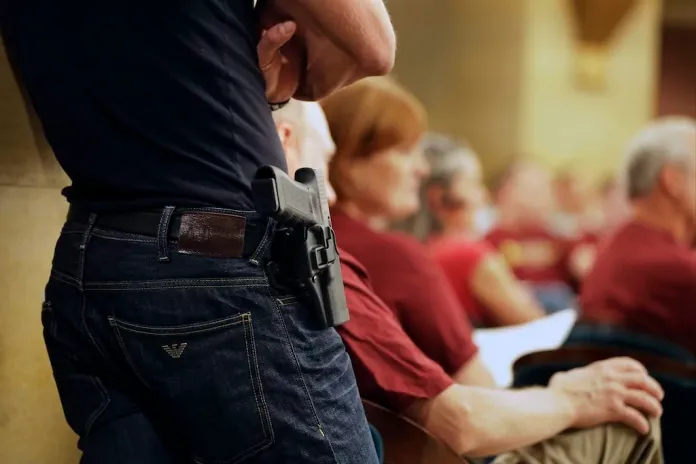
In a straw purchase, an individual buys a firearm for someone ineligible to purchase or possess guns. House File 2609 amended the state’s straw purchasing law to increase the penalty from a gross misdemeanor to a felony and lowered the bar for prosecution based on whether the firearms provider should have “reasonably known” about the recipient’s ineligibility. Beforehand, the prosecutorial standard required proof of prior knowledge.
Additionally, the bill expanded the statutory definition of illegal “trigger activators” to include binary triggers, which are devices that allow a gun to fire more than one round per pull and release of a trigger. In Minnesota, it is a felony to own, possess, or operate a trigger activator; violations are punishable by up to 20 years in prison.
However, a Minnesota court struck down the binary trigger ban, arguing that the legislature violated the state constitution’s single-subject clause by burying the ban inside a sprawling spending bill.
Both measures became state law after legislators tucked them into a 1,000-plus page tax bill approved by Walz. The language was tacked on in a last-minute amendment just before the legislature adjourned for the 2024 session.
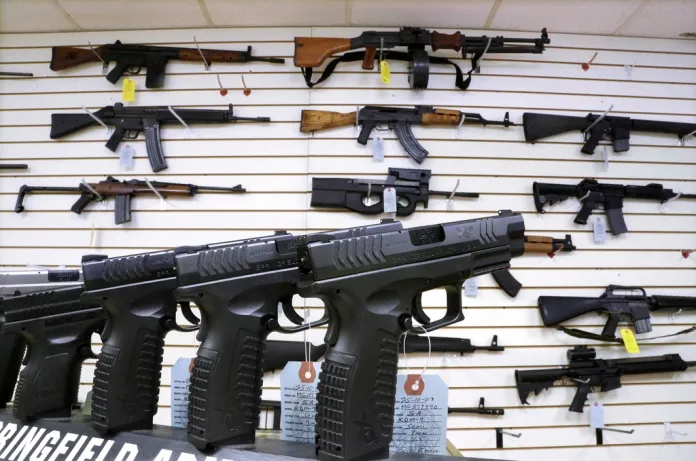
In May 2023, Walz signed into law a sweeping public safety package he had touted as “historic” gun reform.
Introduced as Senate File 2909, the omnibus bill in part prohibits private-party transfers of pistols and semiautomatic “military-style assault weapons” without a prior background check of the firearms recipient. Police are accordingly required to deny an application for a transferee permit or report of transfer if “a substantial likelihood” exists that the individual in question would pose a threat to themselves or the public when in possession of a firearm.
Another provision of S.F. 2909 establishes a “red flag” law temporarily confiscating firearms from dangerous individuals. Through this mechanism, family or household members, law enforcement officers, a city or county attorney, or legal guardian are able to petition the court for an “extreme risk protection order,” including on an emergency basis, prohibiting a person perceived as at high risk of harming themselves or others with a gun from purchasing and possessing firearms for up to one year.
MINNESOTA DEMOCRATS’ ‘RED FLAG’ BILL JOINS FLURRY OF BLUE STATE GUN CONTROL MEASURES
Gun owners have raised concerns about the law skirting due process protections by circumventing the issuance of the warrants typically required in such seizures.
According to Minnesota Judicial Branch data, of the 284 ERPO petitions filed through Aug. 1, few (5%) were rejected by a judge.
Minnesota Gun Owners Caucus chairman Bryan Strawser told the Washington Examiner that tens of thousands of AR-style rifles and accessories are already lawfully owned in Minnesota, and state-level bans on these items would likely not survive legal challenges.
“The recent Minneapolis attack involved handguns and a shotgun—underscoring that focusing on the design of a firearm misses the larger point,” Strawser said.
Strawser urged officials to invest in mental health resources and work to secure schools, rather than focusing on firearm design.
“Instead of treating this as a political football in an election year, we should pursue steps that research shows are effective: strengthening mental health resources, broadening community support systems, providing schools with discreet layered security, and denying perpetrators the notoriety they seek,” Strawser said. “These solutions would have real impact and can earn broad bipartisan, even unanimous, support.”
TRUMP SUGGESTS ‘DISTINGUISHED’ EX-MILITARY TEACHERS COULD CARRY WEAPONS AT SCHOOLS
The state’s Republican Party is expressing similar sentiments.
“Governor Tim Walz has once again shown Minnesotans that he is not serious about solutions—only about radical rhetoric,” Alex Plechash, chair of the Minnesota GOP, told the Washington Examiner.
Speaking on Walz’s record, Plechash said he failed Minnesota’s nonpublic schools when the state’s Catholic dioceses asked him for school security funding following credible threats in 2023.
“Now he wants to rush into a special session, not to solve problems, but to advance an extreme agenda that will not keep children safe,” Plechash said of Walz.
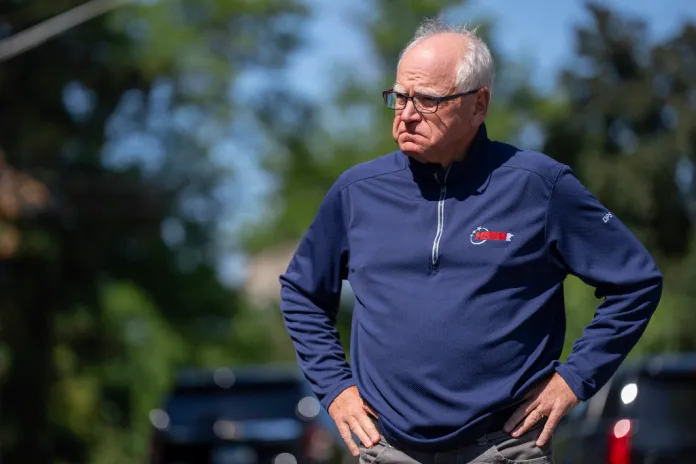
Walz’s proposal, if put to a vote, likely needs bipartisan support to pass. A special election in September is expected to restore a 67-67 tie in the Minnesota House, and state Senate Democrats only hold a one-seat majority.
“I’m going to need some Republicans to break with the orthodoxy and say that we need to do something on guns,” Walz said.
GOP legislative leaders reportedly complained that Walz did not consult them before floating the idea of a special session.
In a statement, Republican state House Speaker Lisa Demuth urged that bipartisanship should be the focus if Minnesota lawmakers convene for a special session.
“If Governor Walz and Democrats are focused on partisan accusations and demands, this special session will not be productive for the people of Minnesota,” the top-ranking House Republican said.
The Washington Examiner reached out to Walz’s office for comment.
Meanwhile, the mayors of Minneapolis and St. Paul are calling on the Minnesota legislature to change a 1985 state statute preventing cities from enacting gun restrictions at the municipal level.
Joined by several suburban mayors, Twin Cities mayors Jacob Frey and Melvin Carter, both Democrats, held a press conference Tuesday to rally for statewide and federal bans on so-called “assault weapons” and high-capacity magazines.
ANNUNCIATION CHURCH SHOOTING COMES AFTER DAYS OF VIOLENCE IN MINNEAPOLIS
Frey said if state and federal authorities decline to do so, Minnesota should give municipalities the power to enact gun reform measures locally. Under state law, the legislature currently preempts all authority of a home rule charter or city government to regulate firearms and ammunition.
“If state and federal officials are either unwilling or unable to make the necessary change, give us, as mayors of these cities, the ability to do it ourselves,” Frey said.
Second Amendment advocates say city-by-city ordinances would be cumbersome for permit holders commuting daily between jurisdictions.
Everytown for Gun Safety, an organization lobbying for greater gun control across the country, ranks Minnesota 14th in the nation on gun law strength. The gun control group Protect Minnesota released a study showing that 2024 gun-related deaths in the state increased by 6%, reaching a 564 total, despite Democratic efforts to combat gun violence.



